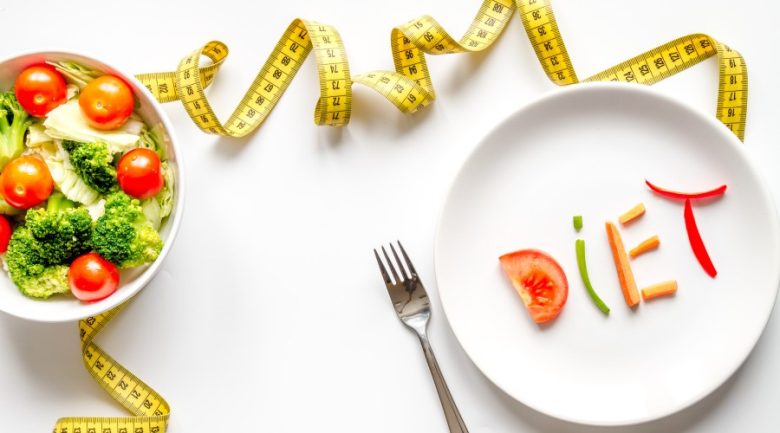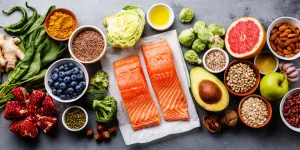As people are more tempted by the attractive views of new fashions. So here appears another new phrase shaping the new attitude—a well-balanced diet. Or is it? As in any activity, there are also systemic errors in this one! Let’s go through some of these mistakes in this section so that you are equipped to develop a realistic nutrition strategy that fits you. Your commitment to better health begins right here! In this article, the two aspects of a balanced diet will be of great importance.
First, a balanced diet is the primary resource for your health. It serves as a source of the vitamins, nutrients, and minerals necessary for the well-functioning of one’s body system. Giving the body the right kind of food also enhances and refreshes your energy and mood. Taking different types of food enables the body to get all its necessary nutrients. The nutrients contained in fruits and vegetables, whole grains and legumes, lean meats and fish, as well as healthy oils, are elements which work in the proper functioning of the body. It helps in strengthening the body system as well.
Furthermore, in order to get rid of health complications like diabetes and heart disease, a good, healthy diet is needed. Likewise, it helps the person to put on or maintain a healthy body weight with no or minimal restrictions. More than the advantages of good physical health, adequate feeding also benefits increase one’s brain productivity and emotional balance. Just as other parts of your body, your brain also thrives on good feeding! Thus, it is saying that achieving balance is not only about good eating; rather, it is ensuring that you are healthy all round for life.
Mistake # 1: Cutting Out a Whole Food Group
There are many who think slicing off all food groups is how one achieves the health of their diet. This tends to work against one’s intentions, though.
Carbohydrate, fats, and even few proteins are very crucial for the proper functioning of your body. If you cut them out completely, you might become deficient in them, and this can bring about several issues in the future. Also, cutting out several foods tends to make people want to eat such foods. The more one says to themselves—no, the more those cravings grow. In the end, a majority of people find themselves in situations where they have to binge on foods that they have been trying to stay away from.
Moderation should be preferred instead of elimination. Eat different kinds of food in your meals. This encourages moderation because it is also interesting to have something different for a change. Keep in mind that it is not just the body that craves food but also the spirit. Non-restrictive approaches to nutrition encourage a wider variety among individuals, making dietary options inclusive.
Mistake #2: Caloric Consumption is the Goal
One of the most common errors regarding dieting is the so-called ‘calorie model’. To some extent, looking into calories helps with weight management, but too much emphasis on such issues causes major problems.
Calorie counting can make consumers forget about the real food value. Not every calorie is the same. A candy bar and 100 calories worth of fresh almonds or berries can’t be both considered equal. The preoccupation with such measuring may cause involuntary stress and anxiety when food is around. It may transform meals into tasks rather than delightful occasions.
Rather than stressing over keeping track of calories, try to understand how different food types impact the body. Do not cut out any food group but instead seek to balance the intake within a food group while following your body’s hunger signals. The topic of weight loss is more on moderation and diversity rather than too many restrictions on the numbers.
Mistake #3: Not Including Enough Whole Foods
Whole foods: you can not move a step further without these. Those are to present nutrients in their natural form. Even so, it is normal to skip them for more processed meals.
Whole foods contain fibre, vitamins, and minerals, among other nutrients which are beneficial to the body. That’s where whole foods often have deficiencies. They are unsatisfactory and leave one wanting more. This is why it is important to include fruits and vegetables and legumes, nuts, whole-grains, and so on in your diet. They can not only increase the energy levels but the health as well.
A new way of preparing whole foods can be fun too. Throw in a lot of colourful veggies or ditch the refined grains for quinoa or brown rice. There is just so much that can be done with healthy foods on a daily basis.
Mistake #4: Using More Supplements Than Real Foods
One of the commonest errors is relying on supplements instead of food. A large portion of the population thinks that with 1 pill they can take over all the benefits of fruits, vegetables, grains and other sugars. Truth be told, real food has other functions that are not achievable with supplements.
Foods containing all their components are filled with vitamins, minerals, fibre, as well as antioxidants. They function in an ideal system and in such a way, good health is achieved. A supplement will contain few of the nutrients in isolation and will not have this coordination. Further, ingesting only tablets may lead to poor dietary habits. For example, you may find yourself missing out beneficial macronutrients such as healthy oils and proteins because they are readily available in nature.
That is important too! Having fruits and vegetables or healthy meals can improve one’s attitude towards food. It is about feeding your body and the concurrence of food activity in it is absent there in a bottle.
How to Come Up with a Realistic Balanced Diet Plan?
What the ideal weight loss maintenance plan consists of has to do with the needs of the person who wishes to follow the plan. No two persons can have the same weight loss plans hence it is imperative to have equality on such parameters like age, physical activity and objectives. Variety should be practiced as in the composition of the meal. Colorful fruits and vegetables, whole grains, lean meat, and oils. Nearly every eating category has the vital components for optimal well-being.
Try to have your meals planned ahead of time to avoid eating on the spur of the moment. This will also help in the control of serving sizes’ and decrease any leftovers. Efficient cooking should be planned as it helps to save time on busy days and having healthy food options ready to eat. Try this – when you are hungry, try not to look at your watch for the next meal time or your portion size. Instead take that meal into your body; this helps in proper digestion and satisfaction of a meal taken.
Conclusion:
Eating well is not a passing fad; it requires commitment to a certain change of behaviour. Taking effort to make good decisions does not only benefit you now but also in the future. Do not forget that balance is not obtained in a matter of days; it is a process of finding out and accepting learning.
Stay away from the common mistakes of excluding some food groups, or being too strict with the amount of calories one eats and this will help in feeding yourself well. Foods eat to work should be in the forefront of each of your meals; so that it will supply basic nutrients without extra content additional for nutrients.
As you set off on this path, take the time to consider the aspect of sustainability. Make your plan feasible in terms of your personality and daily routines but be willing to change it at any point. Savor the different tastes and dishes that fall in this category of healthy living. Realize that victory, no matter how small, should be celebrated because each small step towards that equilibrium will yield very good results in the long run with regards to health.
FAQs:
1. What is a well-balanced diet?
A well-balanced diet differs in that it includes food from every single category of food such as fruits and vegetables whole grains protein mainly lean meats or legumes and healthy fats too. Having diversity in your diet makes sure that all the nutrients required by your body to function properly are met.
2. Need to count calories to manage weight?
Count the calories that you consume for controlling your weight can be useful, but calorie counting should not be the main focus rather concentration on the quality of foods consumed should be a priority. Often much better benefits would be achieved by chewing nutrient dense meals as opposed to calorie cutting measures.
3. How do I know if I’m incorporating enough whole foods in my diet?
Try to ensure that at least half of your plate is covered with fruits and vegetables at every meal. Whole foods are those foods in their natural state or in the least processed form which may include vegetables, fruits, nuts, seeds, grains, and lean proteins. In the event most of your meals are made up of processed foods or fast food, it might be time to change that.
4. Are supplements good enough to use instead of food?
Supplements are intended to be used alongside a healthy diet rather than as a replacement for it. Real food contains real nutrients that work together and promote health, which is not something that can be easily provided by supplements.
5. Can I incorporate some foods that offer no opficiency into the meals?
You can and you should; not everything has to be so prudish all the time! Treats in moderation are quite alright within a balanced approach to eating. The most important thing is to make sure moderation is followed; sometimes go overboard and enjoy the pleasure of eating unhealthy food, knowing that most of the time, the same healthy food will be the basis of your meal.




